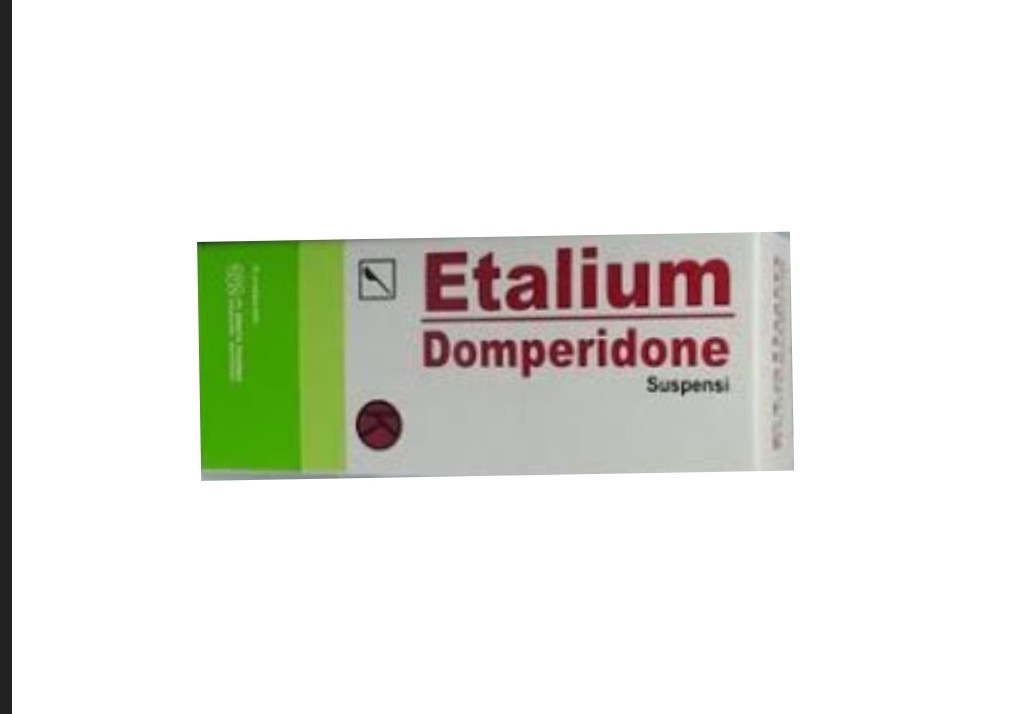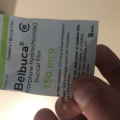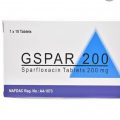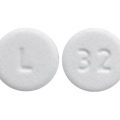What is Etalium?
Etalium is a medication used in the treatment of dyspepsia, relieving nausea and vomiting. Dyspepsia, also known as indigestion, refers to discomfort or pain that occurs in the upper abdomen, often after eating or drinking. It is not a disease but a symptom. Dyspepsia is a common problem, affecting up to 30% of the population.
Functional dyspepsia is common and can be long-lasting — although signs and symptoms are mostly intermittent. These signs and symptoms resemble those of an ulcer, such as pain or discomfort in your upper abdomen, often accompanied by bloating, belching, and nausea.
Etalium can also be used to treat stomach pain if you’re having end-of-life care (palliative care). Etalium is sometimes used to increase milk supply. However, due to the increased risk of severe adverse effects, it is not recommended for use in patients suffering from gastrointestinal hemorrhage, mechanical obstruction, or perforation diseases.
Etalium is produced by Errita Pharma and it is available in syrup and tablet forms. Etalium syrup contains Domperidone 5mg/5ml and each tablet of Etalium contains Domperidone 10 mg as the active ingredient.
How it works
Etalium belongs to a group of anti-sickness medicines known as anti-emetics because their actions reduce nausea and vomiting. This drug works by speeding up the movement of the digestive tract by blocking the action of dopamine, a chemical in the brain that controls nausea and vomiting. This helps to reduce nausea and vomiting and also helps to improve digestion.
How should I take Etalium?
The recommended dose of Etalium for Adults and the elderly is as follows:
Dyspepsia: Take 10-20 mg, 3 times a day and at bedtime, for a maximum of 12 weeks.
Nausea and vomiting: Take 10-20 mg every 4-8 hours.
Children: The recommended dose of Etalium for children on chemotherapy is 0.2-0.4 mg/kg body weight per day.
Etalium should be taken after meals and according to the recommended dosage. If you forget to take any dose or by mistake miss a dose of Etalium, take it as soon as you remember it. If it is already time for the next dose, skip the forgotten dose. Take your next medicine dose at the regular time schedule. Do not double the dose.
If you or someone has taken an overdose of Etalium and has serious symptoms such as passing out or trouble breathing, seek medical advice. Never take more than what is prescribed to you by your doctor.
Can a pregnant woman take Etalium?
No, Etalium is not usually recommended in pregnancy. Research on the safety of domperidone in pregnant women is still very limited. The package insert for Etalium states that it is contraindicated for use in pregnant women and in women suspected of being pregnant, due to teratogenicity observed in reproductive toxicity studies. Consult a doctor before using this medicine if you are pregnant.
Can a breastfeeding woman take Etalium?
Etalium is distributed into breast milk in small amounts. No adverse effects have been found in a limited number of published cases of breastfed infants whose mothers were taking Etalium. Consult a doctor before using this medicine during breastfeeding.
What are the side effects of Etalium?
The side effects of Etalium include:
- Breast pain and tenderness
- Chest pain
- Convulsions
- Difficulty in breathing
- Disrupted menstrual cycle
- Dizziness and fainting
- Dry mouth
- Extreme tiredness
- Irregular heartbeat
- Skin rash
- Swelling of face
- Swelling of hands and feet
What precautions should I observe with taking Etalium?
It should be taken before meals, according to your doctor’s instructions.
It can make you dizzy and sleepy. Do not drive or engage in any activity that requires mental focus until you have determined how it affects you.
When taking Etalium, avoid drinking alcohol as it may cause excessive drowsiness.
As a side effect, dry mouth may occur. Frequent mouth rinses, good oral hygiene, increased water consumption, and sugarless candy may be beneficial.
Inform your doctor if you develop watery diarrhea, a fever, or persistent stomach pain.
Without consulting your doctor, do not take it for more than 7 days.
Because the safety and efficacy of this medicine have not been clinically established, it is not recommended for use in patients under the age of 12 and weighing less than 35 kg. Due to the risk of adverse effects, this medicine should be used with extreme caution in elderly patients over the age of 65. Based on the medical condition, appropriate dosage adjustments with a suitable alternative may be required.
Cardiovascular diseases: Because of the increased risk of serious adverse effects, this medicine should be used with caution in patients with a known history of cardiovascular disorders. Based on the clinical condition, close monitoring of heart function and vital signs, appropriate dose adjustments, or replacement with a suitable alternative may be required.
Electrolyte imbalance: Due to the increased risk of worsening the patient’s condition, this medicine should be used with extreme caution in patients with acute or long-term electrolyte imbalance in the body. While taking this medication, electrolyte levels should be checked on a regular basis. Based on the clinical situation, an alternative treatment option should be considered in some cases.
Prolactin deficiency: This medication should be used with caution because it may increase the risk of prolactin imbalance, resulting in disruptions in the menstrual cycle in women. Men who use this medication for an extended period of time may develop breast-like growth.
What medications can interact with Etalium?
Etalium may interact with a variety of other medications and have serious side effects. As a result, before beginning treatment with this medicine, you should inform your doctor about all of your current medications, including any herbs and supplements.
Every drug interacts differently with each individual. Before beginning any medication, you should discuss all potential interactions with your doctor.
Because of the increased risk of severe adverse effects, this medication should be used with caution in patients with kidney disease. In some cases, based on the clinical condition, close monitoring of kidney function, appropriate dose adjustments, or replacement with a suitable alternative may be required
Due to the increased risk of severe adverse effects, this medication should be used with extreme caution in patients with mild liver impairment. While taking this medication, your liver function must be closely monitored. Based on the medical condition, appropriate dosage adjustments might be required in some cases. It should not be used in patients with moderate to severe liver impairment.
Storage
Store at room temperature only. Keep it away from direct sunlight, heat, and moisture. Keep out of the bathroom. Keep all medications out of the reach of kids.
Frequently Asked Questions
Is Etalium safe?
When used as directed, Etalium is generally safe for most people. However, it can cause side effects such as headache, dry mouth, and stomach cramps. It is important to speak to your doctor about the risks and benefits of taking Etalium.
Can Etalium be taken during pregnancy?
Etalium is not recommended for use during pregnancy unless it is considered essential by a doctor. This is because there is limited information about the safety of the medication during pregnancy.
Can Etalium be taken while breastfeeding?
Etalium can be taken while breastfeeding, but only under the guidance of a doctor. The medication may increase milk production in some women, but it can also cause side effects in both the mother and baby.
Can Etalium be used long-term?
Etalium is generally only recommended for short-term use, usually up to one week. Long-term use may increase the risk of side effects.
Can Etalium be used for motion sickness?
Etalium may be used to treat morning sickness, but only under the guidance of a doctor. The medication may increase milk production in some women, but it can also cause side effects in both the mother and baby.
Is Etalium available over-the-counter?
Etalium is not available over-the-counter in most countries. It is usually available only with a prescription from a doctor.
Can Etalium cause drowsiness?
Yes, Etalium can cause drowsiness as a side effect. It is important to be cautious when driving or operating heavy machinery while taking this medication.
Can Etalium be used to treat heartburn?
Etalium is sometimes used to treat heartburn, but it is not typically the first-line treatment. Other medications such as proton pump inhibitors (PPIs) and H2 blockers are more commonly used for this purpose.
Is Etalium a stimulant?
No, Etalium is not a stimulant. It works by blocking the action of dopamine, which helps to reduce nausea and vomiting.
Can Etalium be used for irritable bowel syndrome (IBS)?
Etalium is not typically used for IBS. Other medications such as antispasmodics and laxatives may be more effective for treating symptoms of IBS.
Can Etalium be used to treat constipation?
No, Etalium is not typically used to treat constipation. Other medications such as laxatives and stool softeners are more commonly used for this purpose.
Can Etalium be used to treat gastroparesis?
Yes, Etalium is often used to treat gastroparesis, a condition where the stomach takes too long to empty its contents. It helps to improve digestion and reduce symptoms such as nausea and bloating.
Can Etalium be used to treat reflux in babies?
Etalium may be used to treat reflux in babies, but only under the guidance of a doctor. It is important to carefully monitor the baby for side effects while taking this medication.
Can Etalium be used to treat nausea and vomiting from chemotherapy?
Etalium is not typically used to treat nausea and vomiting from chemotherapy. Other medications such as ondansetron and dexamethasone are more commonly used for this purpose.
Can Etalium be used to treat migraines?
Etalium is not typically used to treat migraines. Other medications such as triptans and nonsteroidal anti-inflammatory drugs (NSAIDs) are more commonly used for this purpose.
ALSO READ: Is Pedialyte Good For Vomiting?





